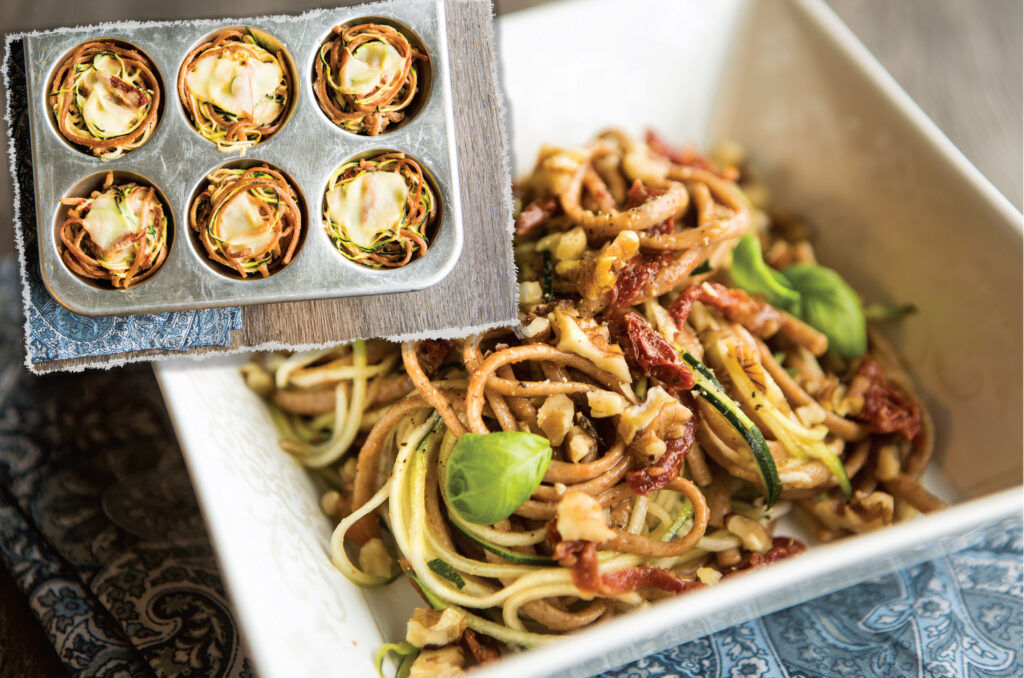Advertisement
Get Creative With Leftovers
Dinner today makes lunch tomorrow

The word “leftovers” doesn’t exactly conjure up excitement. However, you may start to think differently about what leftovers can be after they’re given a quick but drastic makeover. When last night’s dinner gets a fresh coat of paint, it works well for tomorrow’s breakfast, lunch, or dinner.
Cooking fresh meals from scratch every day of the week isn’t attainable for most home cooks, nor is it appealing, especially when the result is a fridge full of forgotten leftovers. Letting leftovers sit untouched until they’ve grown far too old (and a bit of mold) contributes to a major problem in home kitchens: food waste.
Throwing out food is a disservice to both the environment and your wallet. Revamping leftovers with just a few extra ingredients is an ecologically and economically sound way to cook. Repurposing meals also makes meal planning and grocery shopping much easier. Read on for three great dinner recipes, plus a creative way to use up the leftovers from each one.
A little kitchen magic, a fresh ingredient or two, and a fresh presentation of a dish is a two-for-one deal that’s impossible to turn down. These next-day switch-ups are so tasty, leftovers naysayers may even begin to look forward to tomorrow’s dinner do-over.
Advertisement
Recipes
Tonight’s Dinner and Tomorrow’s Lunch:
Tonight’s Dinner and Tomorrow’s Lunch:
Tonight’s Dinner and Tomorrow’s Brunch:
- Barbecue Tempeh with Lemony Potatoes and Asparagus
- Lemony Waffle Stacks with Barbecue Tempeh and Poached Eggs
Ingredient swaps
If you don’t have all of the ingredients a recipe calls for, don’t run to the store; check your refrigerator or pantry for something similar.
- Replace vegan proteins such as tofu and tempeh with cubes of chicken breast.
- Make a grain-based meal (rice or couscous dishes, etc.) for a grain-free diet by substituting finely minced or grated cauliflower.
- Transform a meal’s flavour profile by using a different set of spices:
- dill for Greek-inspired taste
- cumin and chili pepper for Mexican flair
- curry powder for a take on Indian
- cardamom and caraway as a nod to Scandinavia
- cinnamon and saffron for a hint of Morocco
Don’t throw it out
Roasted vegetables
Blend with low-sodium broth for a quick soup. Try roasted broccoli, cauliflower, squash, beets, or potatoes. Roasted vegetables also work well in salads for lunch the next day.
Cooked protein
Cubes of chicken breast, flaked salmon, roasted chickpeas, and tofu cubes can be tossed with yogurt, chives, and lemon juice for a quick sandwich or wrap filling. Or, add to pasta dishes, soups, stews, and chili.
Overripe bananas
Peel, cut into pieces, and freeze on a parchment-lined baking sheet until solid. Store in a freezer bag for use in smoothies (from frozen) and quick breads (defrosted).
Cooked pasta
Leftover pasta can be transformed into a lunch-friendly pasta salad. Toss with olive oil, balsamic vinegar, and a variety of chopped vegetables and herbs. Sprinkle with feta, if desired.
Cooked grains
Stir into muffin or pancake batter, make into a warm porridge, mix into kale salad, or whip up some homemade sushi by rolling them in a sheet of nori (seaweed).
How to make perfect poached eggs
- Use fresh, organic egg. (If egg sinks to the bottom of a bowl of water, it’s fresh; if it floats, it’s not.)
- In medium saucepan, bring 6 to 7 in (15 to 20 cm) of lightly salted water to a simmer.
- Crack egg into ramekin, then pour into a slotted spoon. Hold spoon to allow residual white to drain.
- Lower slotted spoon into simmering water, then gently remove after egg is deposited.
- Poach until cooked, about 3 to 5 minutes.
Check out our how-to video at alive.com/video.





